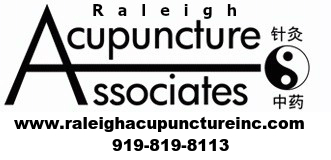
Overview of Jaw Pain Research
This 2010 jaw pain acupuncture research study evaluated the effectiveness of acupuncture in treating symptoms associated with myofascial pain of the jaw muscles.
Investigators randomly divided twenty-eight subjects diagnosed with chronic myofascial pain of the jaw muscles into two groups – real (n = 16) and sham (n = 12) acupuncture. Prior to treatment, each subject was asked to clench his or her teeth for 2 minutes. Acupuncturists then administered either real or sham acupuncture at the Hegu (LI4) acupoint for 15 minutes.
The investigators obtained general head and neck pain ratings before and after treatment on a numerical rating scale. In addition, they activated a mechanical pain stimulus on the masseter muscle before and after treatment to measure pain tolerance levels.
Acupuncture Delivers Impressive Results
Subjects receiving real acupuncture experienced a significant reduction in jaw pain, jaw tightness, and neck pain, and a significant increase in pain tolerance of the masseter muscle. In addition, the subjects could not tell whether they received real or sham acupuncture. The sham group had no significant pain reduction.
Based on this data, investigators concluded that a single acupuncture treatment using one acupoint at Hegu (LI4) significantly reduced myofascial pain compared to sham acupuncture.
Background on Myofascial Pain
Myofascial pain involves local, hypersensitive areas of the face made of tight bands of muscle fiber (myofascial trigger points). These trigger points may be caused by muscle overload from trauma or repetitive activities causing abnormal stress on specific muscle groups. Patients typically complain of jaw tenderness, headaches, restricted movement, muscle stiffness, and weakness.
Acupuncture for Myofascial Pain
Acupuncture is an increasingly popular treatment option for myofascial pain in the United States. According to the 2007 National Health Interview Survey (NHIS), 3.1 million adults and 150,000 children used acupuncture in the previous year. During this time, acupuncture use among adults increased by 1 million people.
Researchers have proposed a variety of mechanisms to explain the analgesic effects of acupuncture. They range from the traditional Chinese medicine explanation of energy flow imbalances in the body (a.k.a. Qi stagnation), to modern Western views that acupuncture activates neural and endogenous opioid systems. The involvement of classic analgesic systems is supported by neuroimaging and other studies performed on human and animal subjects.
Jaw Pain Acupuncture Research
The purpose of this jaw pain acupuncture research study was to evaluate the acupuncture’s effectiveness treating jaw pain. Unlike many earlier studies, this investigation utilized a strong sham acupuncture protocol that differentiated placebo effects from acupuncture-specific effects. Investigators hypothesized that acupuncture-specific effects would produce a significant amount of pain relief while the sham procedure would not.
Jaw Pain Study Participants
Researchers at the University of California San Francisco (UCSF) Orofacial Pain Center recruited twenty-eight patients seeking treatment for jaw pain. They were all diagnosed with bilateral chronic myofascial pain of the jaw muscles and met the following inclusion criteria:
(1) Participants were at least 18 years of age.
(2) They had a confirmed diagnosis of chronic myofascial pain of the jaw muscles.
(3) All subjects experienced pain at least 4 times a week in the jaw muscles for at least twelve weeks.
(4) They had an average pain severity of at least 4 on a 10-point scale for at least one hour a day.
(5) The participants had never received acupuncture before.
(6) Pain was located in the jaw, temples, face, or in the ear.
Acupuncture Treatment for Jaw Pain
Practitioners used a single acupoint for all participants. Hegu (LI4) is located between the thumb and pointer finger in the center of the thenar eminence muscle. This acupoint is commonly utilized to treat head and neck pain. The investigators adopted this single-needle acupuncture protocol because past studies showed it to be sufficient for clinically significant results, to minimize potential confounders, and for easy access.
As per the protocol, the acupuncture group received real acupuncture while the sham group did not. Practitioners acted as if they were inserting a needle into their hand, but the needle never penetrated the skin.
After the procedure, investigators reevaluated the participants for general jaw and face pain, jaw and face tightness, headache, and neck pain. Then a blinded experimenter applied mechanical stimulation with an algometer to the jaw muscles at maximum tolerance levels. Participants were asked to provide a new pain rating.
Jaw Pain Research Discussion
An increasing body of evidence supports the use of acupuncture in treating chronic conditions such as myofascial pain disorder (jaw pain). A review of 116 patients treated for musculoskeletal pain with acupuncture found that 69% benefited with a 30% or more reduction in pain after three treatments. Another study provided six acupuncture sessions to 27 TMJ patients and found a significant improvement in signs and symptoms of myofascial pain with real acupuncture but not with sham acupuncture.
This jaw pain acupuncture research study focused on individuals with moderate pain levels of chronic myofascial pain of the jaw muscles. Participants experienced clinically significant reductions of jaw pain, face pain, jaw tightness, and neck pain with a single session using just one acupoint of real versus sham acupuncture (75% versus 33% positive response rate of at least 30% pain reduction).
Participants also experienced an increase in pressure-pain tolerance of the masseter muscle with real acupuncture than sham acupuncture. This suggests that acupuncture increased the functional tolerance of the masseter muscle in myofascial pain patients, who have significantly lower pressure-pain tolerance than healthy individuals.
Research Conclusions
The findings of this jaw pain acupuncture research study overwhelmingly suggest that acupuncture has beneficial clinical effects above general placebo analgesia induced from sham acupuncture for alleviating most myofascial pain symptoms.
Next Steps
BOOK NOW to schedule an appointment online.
Additional Jaw Pain Resources
Watch Video About Our Jaw Pain Treatment.
Jaw Pain Acupuncture Case Study.
Jaw Pain Acupuncture Research Study.
Learn about all the conditions we treat.
Reference
Shen, Y. F., Younger, J., Goddard, G., & Mackey, S. (2009). Randomized clinical trial of acupuncture for myofascial pain of the jaw muscles. Journal of orofacial pain, 23(4), 353–359.
Focus Keyphrase: Jaw Pain Acupuncture Research
Photo by MART PRODUCTION: https://www.pexels.com/photo/a-woman-massaging-her-jaw-8076169/


What our Clients are Saying
My jaw was broken 20 years ago and never healed right. I had constant pain all the time. Finally tried acupuncture for a lark. Ended up getting rid of 90% of the pain. Couldn’t believe it. I highly recommend Raleigh Acupuncture Associates.
My sister recommended Raleigh Acupuncture for my TMJ, after no luck with other types of treatment. I was surprised and pleased to see that acupuncture helped. My jaw pain is gone after 6 treatments. No pain at all. I recommend this practice to anyone with TMJ.



